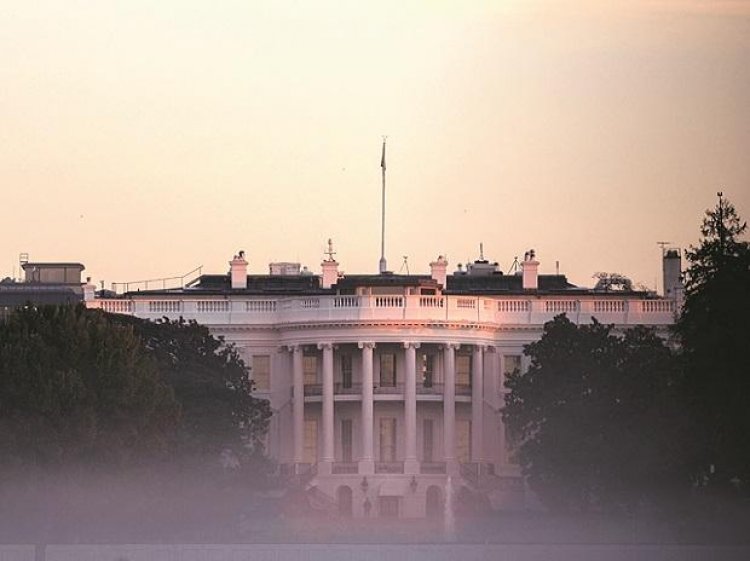White House expects China dialogue to be frank, plans to raise many issues

Washington: The US wants its first face-to-face meeting with China under the Biden administration to be frank and plans to cover difficult areas like Beijing's anti-democratic action in Hong Kong, its human rights violations and military tension in the region, according to the White House.
The relations between the US and China are at an all-time low. The two countries are currently engaged in a bitter confrontation over various issues, including trade, the origins of the novel coronavirus pandemic, the communist giant's aggressive military moves in the disputed South China Sea and human rights.
US Secretary of State Antony Blinken and National Security Advisor Jake Sullivan met their Chinese counterparts Wang Yi and Yang Jiechi in Anchorage, Alaska.
This meeting, we certainly anticipate, will have difficult components of the conversation. We expect it to be frank. They plan to cover areas where we have concerns, including human rights, Hong Kong. Obviously, we've put forward some sanctions related to the anti-democratic actions in Hong Kong over the last couple of days. Technology, whether it relates to the theft of IP or data protections. Military tensions in the region, White House Press Secretary Jen Psaki told reporters at her daily news conference on Thursday.
Last year, China approved a contentious law that would allow authorities to crack down on subversive and secessionist activity in Hong Kong.
Hong Kong, an economic powerhouse, is a Special Administrative Region (SAR) of China. It has observed a "one country, two systems" policy since Britain returned sovereignty to China on July 1, 1997, which has allowed it certain freedoms the rest of China does not have.
The US condemns China's continuing assault on democratic institutions in Hong Kong.
So it will cover, as will be no surprise to anyone here who follows China closely, a range of topics. And I think the President (Joe Biden) is eager to hear from them on how the conversation goes and work with them to determine what the next right step is, she said. On return from Alaska, Blinken and Sullivan would brief Biden, after which the president is likely to finalise his China policy.
He (Biden) will make a determination about (meeting with Chinese President Xi Jinping) that when they return and he has a chance to talk to Secretary Blinken and National Security Advisor Sullivan, in part because he doesn't see this, nor do they, as a preset series of meetings like the traditional dialogues that we've seen throughout other administrations, including ones that he has previously served in, Psaki said.
In his (Biden's) mind and in the minds of National Security Advisor Sullivan and Secretary of State Blinken, a big part of the strategy is approaching our relationship with China from a place of strength and strengthening our own economy at home, investing in the middle class, looking at it through the prism of competition, not conflict. And that means there's also more work we have to do here, she said.
Republican Senator Bill Hagerty, a member of the Foreign Relations Committee and former US Ambassador to Japan, in a statement urged the Biden administration to hold China accountable for its wide range of malign and predatory behaviour.
We cannot ignore that China is engaged in ongoing genocide against Uyghurs in Xinjiang province; strong-armed and even illegal tactics to steal intellectual property in the United States and around the world; ending Hong Kong's autonomy in violation of an international agreement; secrecy and disinformation to frustrate investigations into the origin of the pandemic; increasing threats and intimidation against democratic Taiwan; militarising the South China Sea to pursue unlawful claims in that region; and economic coercion against US allies to censor criticism and compel concessions, he said.
India, the US and several other world powers have been talking about the need to ensure a free, open and thriving Indo-Pacific in the backdrop of China's rising military manoeuvring in the region. The Chinese military is also actively eying the strategic Indian Ocean region to step up Beijing influence.
China claims nearly all of the disputed South China Sea, though Taiwan, the Philippines, Brunei, Malaysia and Vietnam all claim parts of it. Beijing has built artificial islands and military installations in the South China Sea.
Because Beijing respects only strength, I urge Secretary of State Blinken and National Security Advisor Sullivan to continue and expand the strong and effective China strategy and policies implemented during the Trump administration until we and our allies are able to verify that China's malign activities have ended, Hagerty said.
Senators Jim Inhofe, Tom Cotton and Rick Scott on Thursday introduced the China Trade Relations Act to strip China of its Permanent Normal Trade Relations (PNTR) status and return to the pre-2001 system.
If passed, the legislation would require China to obtain Most Favoured Nation (MFN) status through annual presidential approval, per the requirements of the Jackson-Vanik Amendment. The bill would also expand the Jackson-Vanik Amendment to include human rights and trade abuses as disqualifying factors for MFN status. Companion legislation was introduced in the US House of Representatives by Congressman Chris Smith.
On the Senate floor, Republican Senator Chuck Grassley said a recent poll showed that 45 per cent of Americans acknowledge that China is the greatest threat to the United States.















































